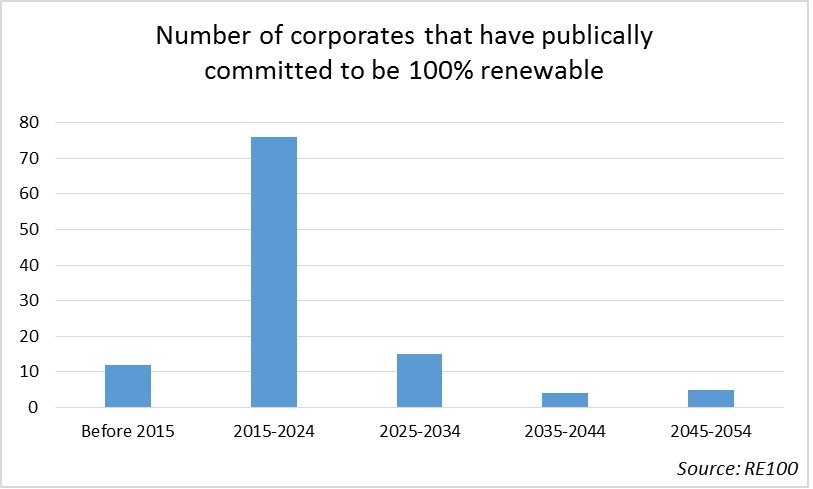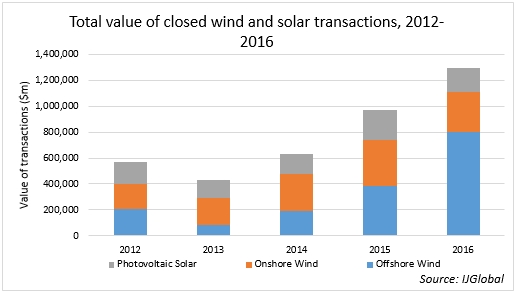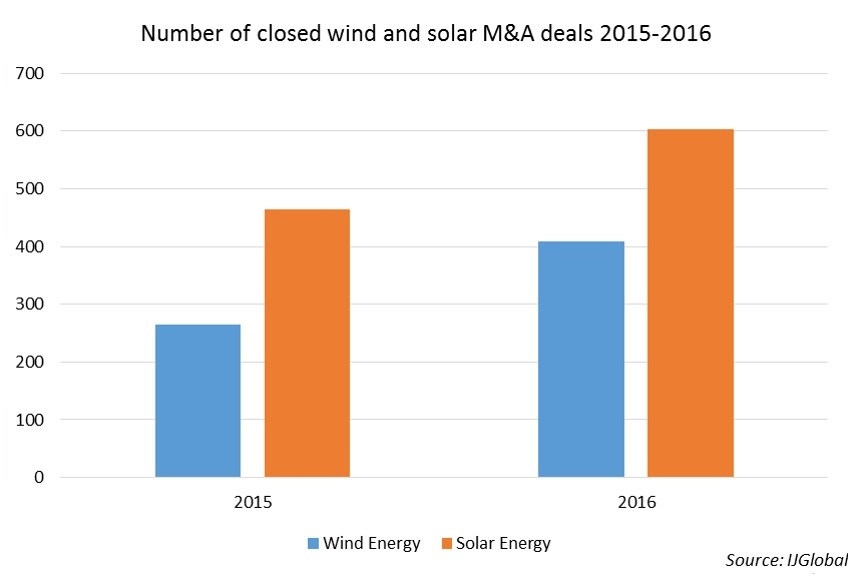Energy independence
Swedish furniture retailer IKEA, this week agreed to buy its second wind farm in Canada, which will generate enough energy to power 54 IKEA stores. The investment is part of IKEA’s broader strategy to be 100% renewable by 2020.
IKEA is not alone in its cause. Hundreds of major corporates have committed to becoming 100% renewable, most by 2024. Internet giant Google is perhaps the most ambitious, aiming to be 100% renewable this year. Google is to date the largest corporate purchaser of renewable energy in the world.
Corporates like IKEA and Google are investing in energy assets, or signing corporate PPAs with renewable energy asset owners bypassing the grid. This small scale distribution model is disrupting the energy market. At the end of last year Google signed a long term agreement with AkzoNobel, DSM and Philips to jointly source power from renewables projects in the Netherlands.
However, according to data from global energy initiative RE100, only 3% of renewable energy purchased by corporate companies in 2016 was via a corporate PPA. And less than 1% of consumption was from on-site facilities, a direct line to an off-site generator with no grid transfers, or from on-site installations owned by a supplier.
The purchase of Renewable Energy Credits (RECs) is still the most common way for major corporates to consume renewable energy; purchasing renewable energy to match energy consumption from other energy sources. Almost all companies that have committed to be 100% renewable will meet that target through the purchase of RECs.
Development will catch up eventually. IKEA already owns and operates 327 offsite wind turbines and 730,000 solar panels on IKEA buildings. This accounted for 71% of the group’s energy consumption in 2016. Facebook aims to run its data centres with at least 50% renewable energy by 2018. And according to IJGlobal data the development of wind and solar has risen exponentially over the last five years.
If major corporates become energy off-takers what role is there for the traditional energy distributors? The energy market is changing. The days of big utility scale projects is coming to an end and the major corporates appear to be in the driving seat.
Request a Demo
Interested in IJGlobal? Request a demo to discuss a trial with a member of our team. Talk to the team to explore the value of our asset and transaction databases, our market-leading news, league tables and much more.


